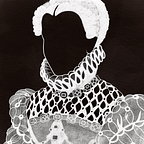The Florentine Friar That Stood Up Against the Borgia Pope
Friar Savonarola and the Puritanical late 1400s’ prelude to Protestantism.
Girolamo Savonarola was a man hailed by Martin Luther as a martyr and a predecessor to his own ideas, executed by a corrupt pope famous for his nepotism and being on the receiving end of accusations of treachery and scandal. The Huguenots (Calvinists) of France deemed that Savonarola advocated values which they themselves championed, and thus the Dominican friar acquired the reputation of being a vital forerunner to Protestantism. What’s more, is that he dared to stand up to corruption within the Catholic church while living in Italy at a time when his pope was known for his combative attitude. Cesare Borgia didn’t inherit his trait of never forgetting slights against his person and family from a stranger, after all.
Early life
Savonarola was born in 1452, at the height of the Italian Renaissance in the northern Italian city of Ferrara. Like most families at the time, his parents had a good number of children, totalling seven. Savonarola was fortunate enough to have a successful physician and polymath, the latter term referring to an individual who had knowledge on a number of subjects, for a grandfather. This grandfather was responsible for Savonarola’s early…
